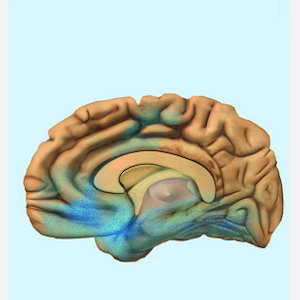
Alzheimer’s Disease (AD) continues to be a significant concern in the medical community, affecting millions of people worldwide. The past year has seen some groundbreaking research that aims to understand the disease better and develop effective treatments. This article will summarize some of the most notable studies and news in the field of Alzheimer’s Disease research over the past 12 months.
Cellular Changes in Early Alzheimer’s Disease
A study led by researchers at the Broad Institute of MIT and Harvard has made significant strides in understanding the cellular changes unique to the early stages of Alzheimer’s Disease. The team analyzed brain tissue samples from 52 living patients, including 17 who were later clinically diagnosed with Alzheimer’s. They discovered a brief hyperactive state in a specific group of neurons associated with their death in later stages of the disease. The study also found increased inflammatory processes in immune cells called microglia as the disease progressed. Another significant finding was the role of oligodendrocytes, which produce insulating sheaths around nerve fibers, in contributing to plaque formation. These findings could help design treatments that work best when given early in the disease progression. Read more
Alzheimer’s Disease in Marmosets
Researchers have created the first non-human primate model of hereditary Alzheimer’s in marmosets. This model aims to reimagine existing preclinical trials for Alzheimer’s Disease and could provide valuable insights into how the disease develops in humans. Read more
Understanding Brain Cell Death in Alzheimer’s
A breakthrough study published in Science has finally answered a long-standing question: how do brain cells die in Alzheimer’s Disease? Researchers from Belgium and the UK transplanted human brain cells into genetically modified mice programmed to produce abnormal amyloid. The study found that the disease progresses through necroptosis, a kind of cellular suicide. This discovery could lead to a whole new line of drug development aimed at blocking the mechanisms that trigger necroptosis. Read more
South Carolina’s First Alzheimer’s Disease Research Center
South Carolina’s three research universities have joined forces to create the state’s first Alzheimer’s Disease Research Center. This initiative has been made possible thanks to a $10 million allocation in the state’s budget. The center aims to accelerate research and provide a collaborative platform for scientists in the state. Read more
Summary
The past year has been a promising one for Alzheimer’s research. From understanding the cellular changes in the early stages of the disease to creating non-human primate models and discovering the mechanisms of brain cell death, researchers are making significant progress. These studies not only deepen our understanding of this complex disease but also pave the way for new treatment options. The establishment of specialized research centers further indicates the growing focus and investment in combating Alzheimer’s Disease. While much work remains to be done, these developments offer a glimmer of hope for millions affected by this devastating condition.

